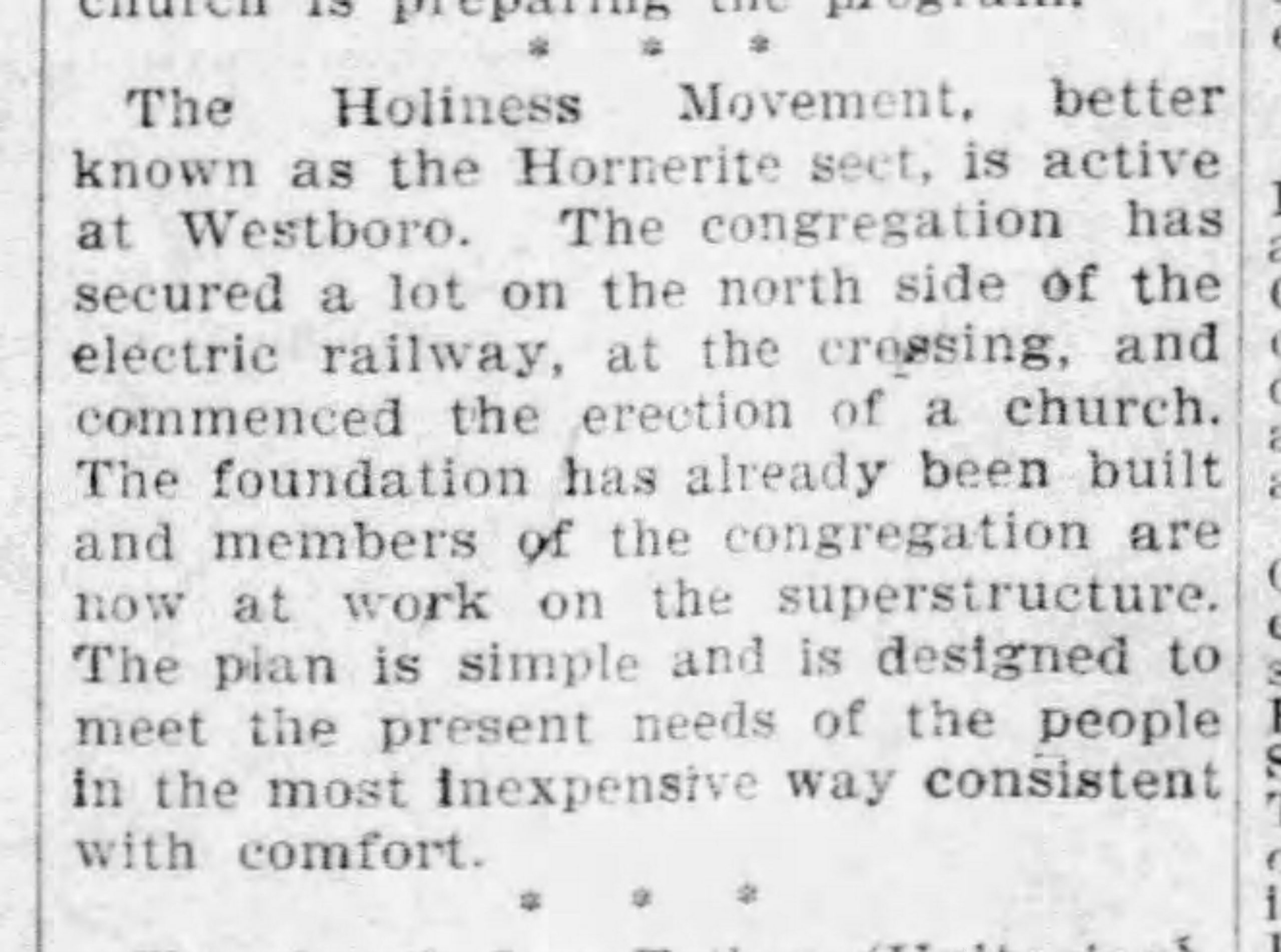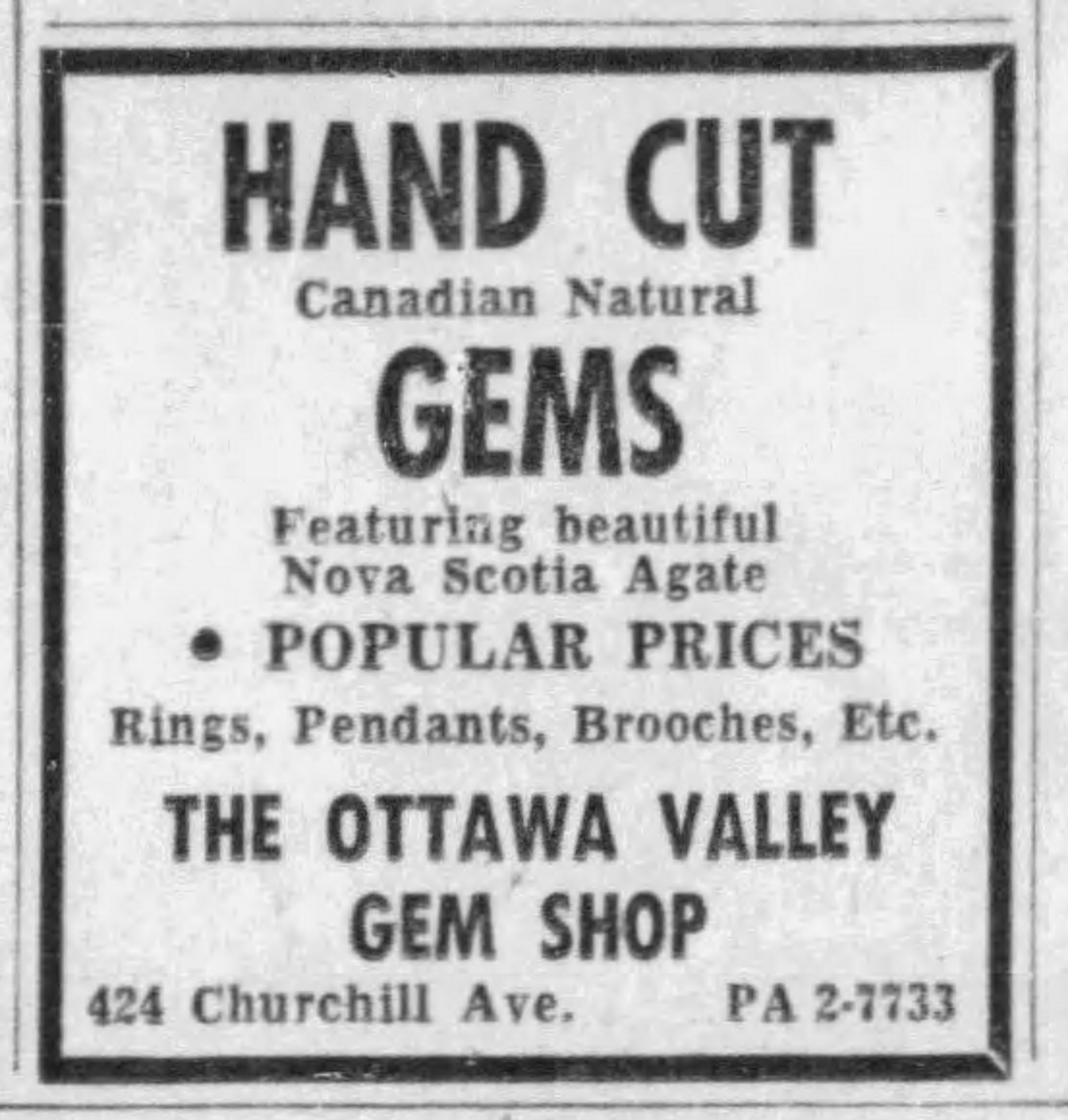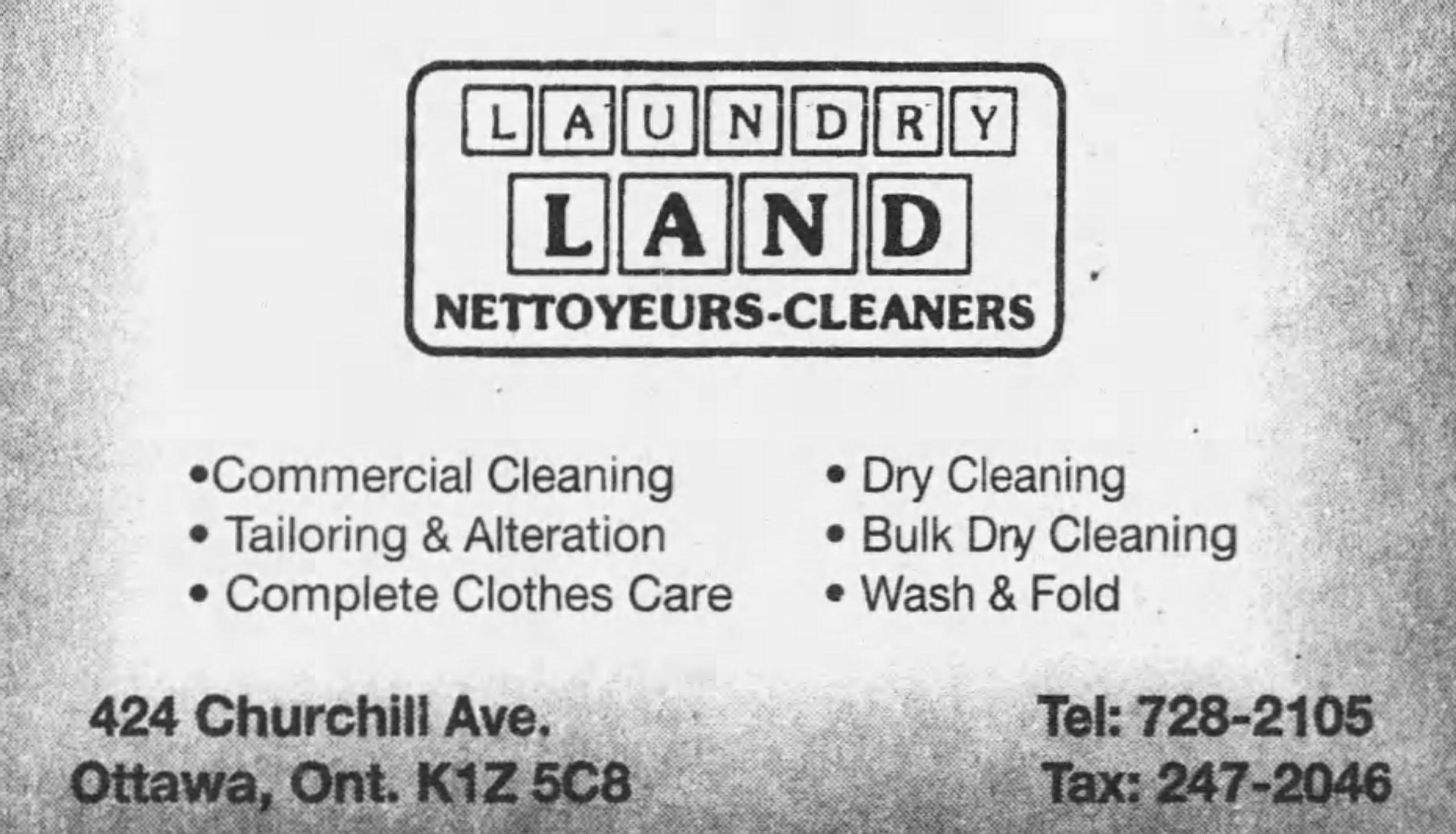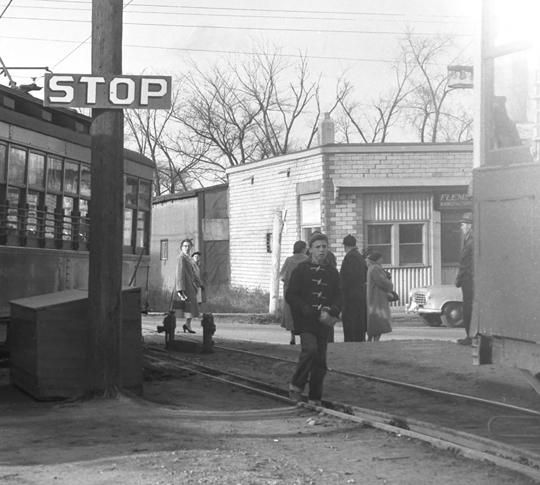By Dave Allston
Laundry Land has been a staple atop of the Churchill Avenue hill for many years. Sadly, however, this spring it was announced that the family-run business would not reopen, a victim of the COVID-19 pandemic. The future of the site is now up in the air.
It is a prime location with panoramic views of the Gatineau Hills, Richmond
Road and the vastly changing Byron Avenue corridor, right in the heart of Westboro.
It was this exceptional setting at the top of Westboro’s Main Street (as Churchill Avenue was once known) hill that was likely of great appeal to Rev. Ralph C. Horner, who, in 1900, built the first structure on the property: a church for his new religious sect that provided energetic services right out of an old movie or TV show!
If the walls of Laundry Land could talk, they’d have quite a story to tell of the past 121 years.
The story really begins back in 1894 when Horner was beginning to test the patience of the Methodist Church in Ottawa. He was known as an outspoken pastor whose emotional methods of preaching became regarded as unorthodox. The church sought to suspend him, while Horner felt restricted within the church’s confines. He began to establish an independent movement, pulling many friends and admirers from the church to attend his services. Across the Ottawa Valley, Horner established a travelling roadshow, setting up tents in towns or villages for anywhere from a weekend to two months, preaching his new Hornerite sect (also known as the “Holiness Movement”) through revivals.

The services were, from all accounts, exciting and dramatic. Horner was an evangelist of “force and energy.” Local papers described Horner’s services in detail:
“Screams can frequently be heard amid the din of appeals to the Deity from the frantic worshippers on all sides…They sit still for a few moments, then the spirit moves them, and the church is suddenly transferred into a madhouse, the worshippers jumping around and falling on the floor until they are exhausted.”
One of his first services was in Westboro (then known as Birchton) in May of 1894, which did not fare well: Onlookers saw Horner’s brother choke one of Hintonburg’s citizens and then the crowd jump to the citizen’s defence.
Despite the incident, Horner had built enough of a following that, later that year in August, he acquired the old wooden schoolhouse at the corner of Richmond and Churchill to hold regular services, thus becoming one of, if not the first location, where Horner established a permanent congregation.
Horner, who was born in Shawville, began receiving large crowds in villages such as Richmond, North Gower, Carleton Place, Kemptville, Merrickville and his hometown of Shawville. He also acquired Mission Hall at Bronson and MacLaren in central Ottawa for downtown services, while producing his newspaper “The Holiness Era” from his bookstore at the corner of Bank and Sparks.
Over the next decade, the Hornerites grew in popularity, and Horner had built or acquired churches in towns across Canada, and even in Belfast, China and Egypt. Training schools were also established in Ottawa. The group was noted at the time for having female preachers.
By the fall of 1900, the Westboro congregation had outgrown the old schoolhouse, and Horner acquired from the Cole family the vacant lot at the top of the hill, alongside the new electric streetcar line (note: where Byron Avenue continues west past Churchill today was until the summer of 1960 only for streetcars; it was only after the tracks were pulled out that Byron was extended to Roosevelt for vehicles).
In November of 1900, it was reported that members were at work on its construction. The church was built in what is today the parking lot of Laundry Land. It was painted white and had a steeple.
It was reported that, “on a warm summer night when doors and windows were open, Main Street would reverberate to the sound of these prayers and many a curious passerby would pause to ascertain the cause of the hubbub.”
The Hornerite Church survived in Westboro until the First World War, and it was vacated sometime around 1918. Horner passed away in 1921, with most of the 118 places of worship and many more congregations he created breaking off and reforming elsewhere.
Local real estate investor Allan Grierson acquired the property in 1918 and converted the church into a house, where painter and decorator Charles H. Thomas and his family resided for a few years.
In 1922, Grierson sold the property back to Cole, and it was at this time that a substantial change occurred. Records indicate that in 1922, the church was moved to the south half of the property (just a few feet from the streetcar tracks), enlarged substantially, and altered into a commercial space.
Harold Leech, who had grown up in Westboro since 1908 just a block south of the building, indicated that when he purchased the building in the 1940s, it was the original church (or at least part of it would have been), confirming that indeed the church must have been moved about 30 feet to the south, and thus some elements of Laundry Land today are pieces of the original Hornerite church.
In 1923, Abel Whitehorne opened the first commercial business in the future Laundry Land building, a grocery store. Then, in 1929, it briefly became the first home of Abraham Borts’ Nepean Outfitters Ltd. (which would later find its home in the Lululemon building for the next two decades). It was the offices of the John Ages ice dealership (1930-1932); a homeopathic pill factory for Wait Remedies (1932-1940); Craincraft Ltd. (opened by Hiram A. Crain in 1941); and a cabinet-making business which soon changed to producing war instruments, but was destroyed by fire in 1944.
During the housing shortage of the depression and then the Second World War, a residential unit was added on in the mid-1930s, tenanted by Nepean Fire Chief Harry Snider and his wife Edna. A second unit was later added as well.
Following the 1944 fire, the building was renovated and Harold Leech then opened his Costume Jewellery Manufacturing business (later known as Fleming-Leech Ltd.) — which offered fashionable, decorative jewellery produced at a cost-effective price.
At first, Leech was a tenant, but he purchased the property in 1949. He removed the residential units and took over the entire building for his business, featuring an office and factory on the main floor and three work rooms upstairs. He also bricked over the old wood-frame structure.
A massive fire on a cold February evening in 1955 destroyed the interior and the entirety of the second floor, leaving only a first-floor shell.
Leech renovated again but kept the building to just the one storey (as it is today). He rented space at the rear to various businesses in the late 1950s (including an engineering firm and the Ottawa Valley Gem Store).

It was in 1961 that Leech and his wife Beryl opened the Westboro Laundrette, a coin-operated laundromat, adding dry-cleaning services a year later. The Laundrette also suffered a fire in 1964 when someone brought in gasoline-soaked clothes to wash, causing an explosion.
In 1970, Leech was forced into retirement due to declining health and sold the business and the property. Though ownership changed hands a few times, it was in the early 1980s that the name became Laundry Land (then a small chain of as many as seven locations in Ottawa), and was, notably, operated by Phi Ho and his wife Muoi Lam. They had come to Canada as Vietnamese refugees and built up the Westboro Laundry Land business (Ho passed away from cancer in 2006 at the too-young age of 50).

In May of 2021, it was announced that owners Tuyen and Thi Dao Tran were joining several other Ottawa laundromat colleagues in closing down their business due to COVID-19. The sudden loss of commercial contracts with hotels, which provided most of their revenue, and a 95 per cent drop in dry-cleaning business left them no choice but to close Laundry Land’s doors. Some rent breaks were given but it was not enough. The couple had been counting on selling the business to help with their retirement, but that was no longer possible and the business sat unsold on the market for a year. The equipment was recently sold to provide some funds, but, ultimately, it was a sad ending for the family.
Laundry Land has been a fixture of Westboro, serving three generations of families. It will be missed not only by local residents who relied on its services, but by the entire neighbourhood for its familiar location at the corner of Byron and Churchill.
Meanwhile, the building sits vacant, and one wonders what the future holds for this piece of property which has seen a lot of history over the last 121 years.
